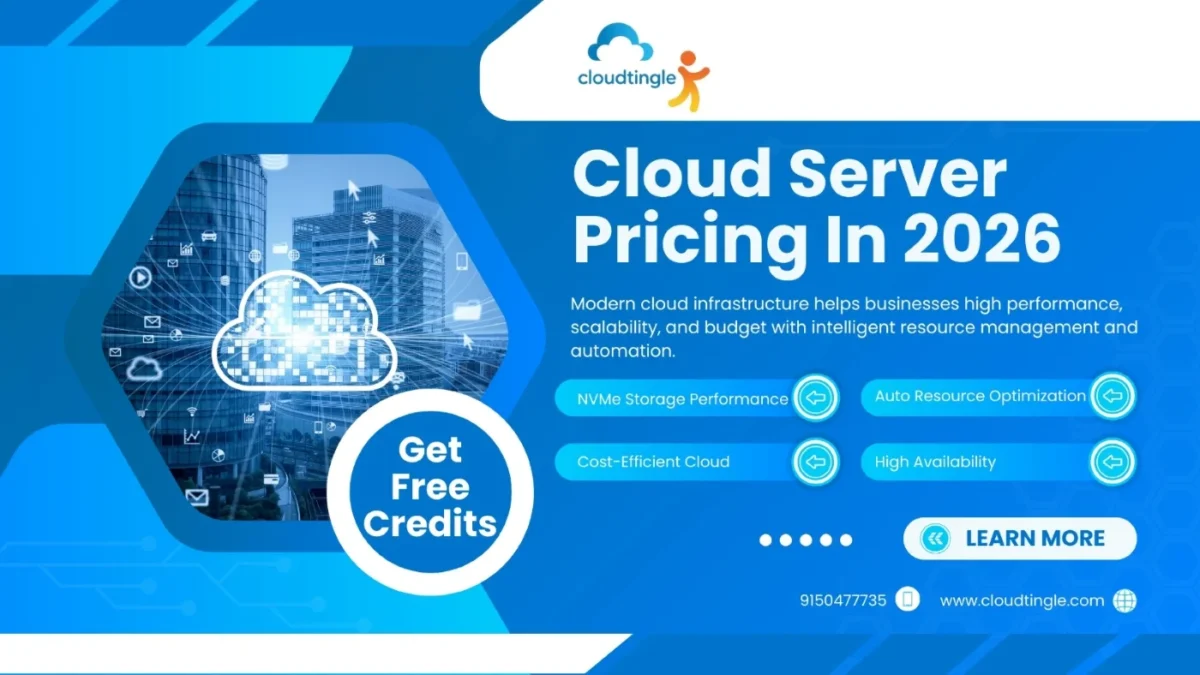E-commerce has also changed the way individuals shop. Browse, compare, and buy products online convenience has established online storefront as a part of everyday life of millions of people across the globe. However, there is a strong infrastructure behind the shiny sites and one-click checkout: cloud hosting. To e-commerce companies that seek to expand and compete as well as offer impeccable customer experiences, cloud hosting is not a choice, but a mandatory requirement.
The Importance Of Cloud Hosting To E-Commerce Development.
Conventional hosting programs tend to fail miserably in the face of the unpredictability of the needs of an e-commerce company. Sales events, seasonal surge or even a viral marketing campaign may easily cripple outdated systems due to traffic spikes. Failure to perform at full speed at such vital times results in frustrated customers and loss of revenues.
Cloud hosting is the solution to these issues since it offers scalable, responsive and reliable infrastructure to meet the demands of e-commerce in the current context. Big or small online shops, international marketplace, the cloud helps you to become as big as you please and be cost-effective in the process.
Low Investment, High Returns
Initial capital outlay on the IT infrastructure is one of the key start up obstacles in e-commerce. Servers, hardware and maintenance may consume resources which could be used in marketing, product development or customer service.
There is no need for capital expenditure in cloud hosting. Rather, the companies are charged per use or subscription based. This type of pay as you go would be especially useful to new companies with small budgets. You can begin small, put your toes in the water and increase the size with growth of demand without the heavy load of costly hardware upgrades.
On-Demand Flexibility And Scalability.
Traffic in e-commerce is hardly consistent. Black Friday sales, shop sales during holidays or flash deals can lead to huge influxes of traffic. Under conventional hosting, the companies either risk going offline because of lack of capacity or may end up wasting resources.
Cloud hosting has on-demand scalability. You are able to increase your computing capacity, storage and bandwidth instantly when your traffic is at its highest point and reduce it when the demand is low. This flexibility guarantees smooth operations at any given time which provides a customer with a smooth shopping experience in addition to cost optimization.
High Quality Performance And Speed.
Even a couple of seconds of lag in page loading will cost an e-commerce shop a lot of revenue. It has been identified that customers leave fast-loading sites and opt to visit slow-loading sites in haste thereby reducing the number of conversions and creating brand damage.
Cloud hosting uses a distributed data center, enhanced caching and load balancing to provide high speed and stability in performance. It has servers in strategic positions at various regions and customers enjoy lower latency, high page loads, and seamless checkout procedures. In competitive markets, performance could be the factor in making the sale or costing a customer.

Better Reliability And Point-of-Failure.
In e-commerce, there is nothing like compromising on reliability. Each minute of the downtime is a loss of sales and trust. Conventional hosting is normally based on a single server or a single data center, which is a single point of failure.
Cloud hosting spreads the workloads among more than one server as well as locations. The failure of one server will automatically be replaced by another server and this will run without failure. This redundancy also minimizes the downtime to the barest minimum and provides business continuity. Such options as automatic backups and copying your data also lead to the degree of reliability and make sure that your store does not experience an unforeseen shutdown.
Enhanced Security Built In Features.
The issue of security is a major issue among e-commerce companies, particularly when dealing with personal and sensitive information of customers such as credit cards and personal information. Cloud hosting companies combine the best security techniques to protect your business.
The cloud also provides all round protection such as firewalls and intrusion detection systems as well as routine security updates. Several providers offer free certificates of CA which guarantees secured transactions and enhances consumer confidence. Managed cloud solutions also make it easier to comply with such global standards as PCI DSS and GDPR. With such in-built capabilities, then the business can concentrate on growth without having to worry about cyber threats.
Enhanced Availability To Make Continuous Sales.
The e-commerce industry is 24/7. The customers make purchases 24/7, any time of the day. The downtime is not only disruptive of the sales, but also is also damaging the credibility.
Cloud hosting ensures there is high uptime which is usually more than 99.98%. The online store is available at all times with troubleshooting being pro-active, and a redundancy incorporated within the infrastructure. Increased uptimes will imply stable sales opportunities and increased reputation as a reliable brand.
Business Continuity Data Mirroring.
E-commerce lives and dies by data. Loss of important information, be it in the form of customer orders, product lineups, etc., can be disastrous. Cloud hosting applies data mirroring techniques on different servers and regions to have information that is never lost.
Mirrored copies protect your business activities even during a hardware failure, corruption of data or other natural calamities. This characteristic does not just eliminate the loss of data, but it also assists businesses to respond fast to unforeseen disturbances to minimize downtime and financial consequences.
Budget Cutting And Quality Retention.
Operating a self-managed IT infrastructure necessitates constant costs in the equipment, electricity, employees, and upkeep. These expenses consume profits and agility in the case of e-commerce companies.
Most of these overheads are reduced by cloud hosting. Outsourcing infrastructure to a reputable vendor enables the company to save a lot of money and yet gain enterprise level performance. The pay-as-you-go model will also make sure that the resources are matched by real needs and reduce wasteful expenditure.
Competitive Advantage On The Digital Market.
The competition in e-commerce is very high. Businesses must offer better user experiences, have a high level of security and efficiency in order to be differentiated. Cloud hosting is what the premise of all these is based on.
Businesses can safely roll out new campaigns, go international and provide real time responses to customer demands as it has faster performance, improved uptimes, and scalability. Leaders will no longer have to concern themselves with infrastructure constraints but can concentrate on strategy, innovation and customer satisfaction.
Convenience has contributed to the emergence of e-commerce yet its future success depends on well-developed infrastructure. Cloud hosting gives the low-investment businesses flexibility and performance, and guarantees reliability, security and scalability. It eliminates the limitations of the traditional hosting and positions businesses on the path of sustainable expansion with such advantages as data mirroring, high uptime, and built-in safeguards.
To e-commerce entrepreneurs, and does not merely mean staying up to date with Cloud Hosting, it is about being ahead of the pack. In a world where the demands of the customers are at an all-time high, the cloud makes your store fast, safe, and never to be missed. The fact that reliability and scalability can be the difference between surviving in the digital marketplace and succeeding as a leader can be true.






